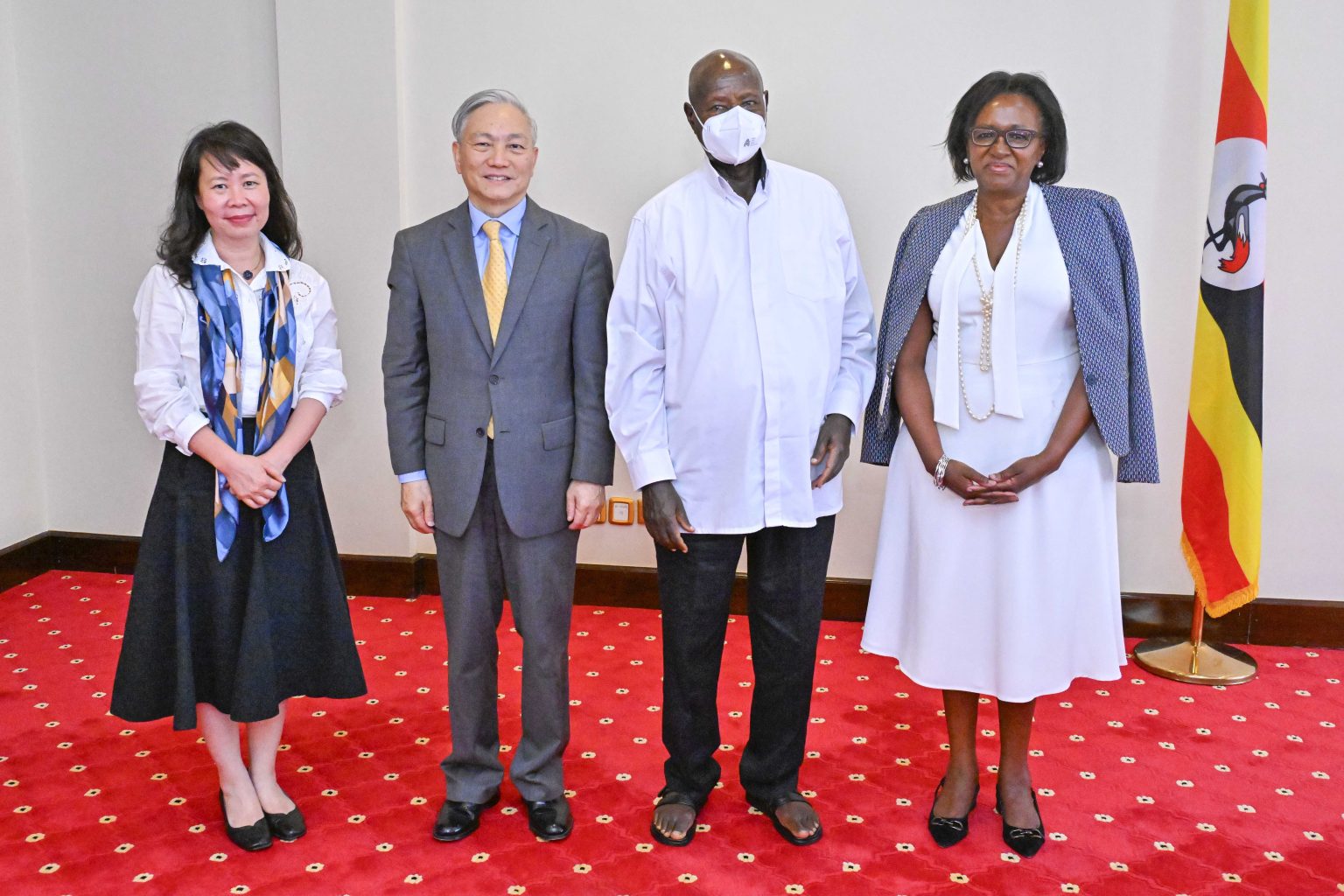President Yoweri Kaguta Museveni on Monday bid farewell to Ms. R. Mukami Kariuki, the outgoing World Bank Country Manager for Uganda, during a meeting at State House, Entebbe. Ms. Kariuki, who has served in the role since August 2021, is concluding her assignment after leading the Bank’s engagement with Uganda on key development initiatives.
President Museveni thanked Ms. Kariuki for her dedicated service and wished her success in her future endeavors. “Thank you so much. I wish you good luck,” he said in a cordial exchange.
Latest
SFC Commander Hails Museveni’s Leadership as 52 Officers Retire with Honor
Mugisha Muntu Rallies Leaders to Restore Dignity and Hope in Uganda
Three-Year-Old Boy Rescued After Dramatic Kidnap in Kisoro
Ambassador Ocheger Recalled Over $1 Million Scandal at Uganda’s Mission in Nigeria
Okello to Captain Uganda Cranes as CHAN 2024 Final Squad Unveiled
FDC Sets Stage for Crucial Delegates Conference to Elect 2026 Presidential Flag Bearer
Ms. Kariuki expressed appreciation for the partnership between the World Bank and the Government of Uganda during her tenure. “Your Excellency, I appreciate the support and partnership we have had. It has been a pleasure working with Uganda,” she said.
The meeting was also attended by Mr. Qimiao Fan, the World Bank Country Director for Kenya, Rwanda, Somalia, and Uganda, who is based in Nairobi. Mr. Fan reiterated the Bank’s commitment to supporting Uganda’s economic development, with a particular focus on agricultural transformation, youth employment, and renewable energy.
“Uganda has great potential. You have fertile soils, abundant sunshine for renewable energy, and a rapidly growing young population that needs jobs,” Mr. Fan said. He emphasized the importance of increasing agricultural productivity through strategic investments in irrigation, logistics, and improved inputs such as seeds and fertilizers.
In response, President Museveni highlighted Uganda’s progress in agricultural research and innovation. “We already have improved seeds for crops like coffee, bananas, maize, cassava, and potatoes. Our research centers have done their job. The challenge now is funding the uptake and supporting farmers to apply the technologies,” he said.
He cited the example of Prof. Florence Muranga from Bushenyi, who uses irrigation to produce 53 tonnes of bananas per acre annually—far surpassing the district’s average yield of five tonnes per acre. The President also stressed the need to relocate communities from wetlands and promote fish farming on the periphery, allowing for environmental conservation while supporting irrigation.
“We want to move people from wetlands and support them to do fish farming on the edge. That way, we preserve the wetlands and still use the water for irrigation,” Museveni explained.
Reflecting on the cultural significance of agriculture, the President noted that many of Uganda’s staple crops—such as millet, bananas, and cassava—are indigenous and deeply rooted in the country’s heritage. “Agriculture is part of our ancient heritage. These crops are not foreign; they are ours,” he said.
President Museveni reaffirmed the government’s commitment to working closely with the World Bank to implement shared development goals, particularly in agriculture and youth empowerment.





